Datos y Guaros: Colombia and the 2022 Pandemic Elections
See the projects presented in the latest edition of our Data and Guaros.
Available in:
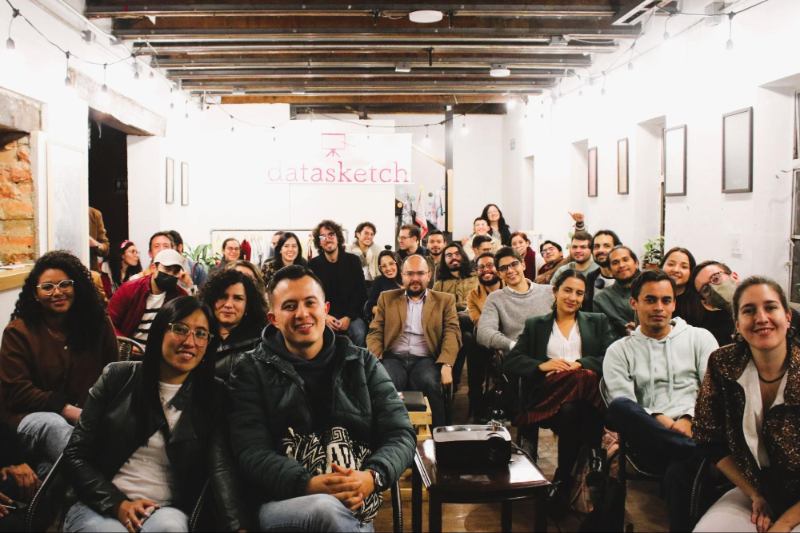
Photo taken at the last edition of Datos & Guaros: Colombia and the 2022 pandemic elections.
This edition of Datos y Guaros featured nine projects by individuals and organizations linked to research, platforms, and data visualizations about and related to elections. Here we summarize the projects and share information, photos, and links.
1. Promedia: biases and polls
Carlos Chaves Avellaneda
The open data platform Promedia allows media analysis, detailed comparison of the landscape of opinion programs, and visualization of all the data collected in surveys of any leader, organization, or program. Carlos Chaves introduced us to the potential of this tool to make comparisons.
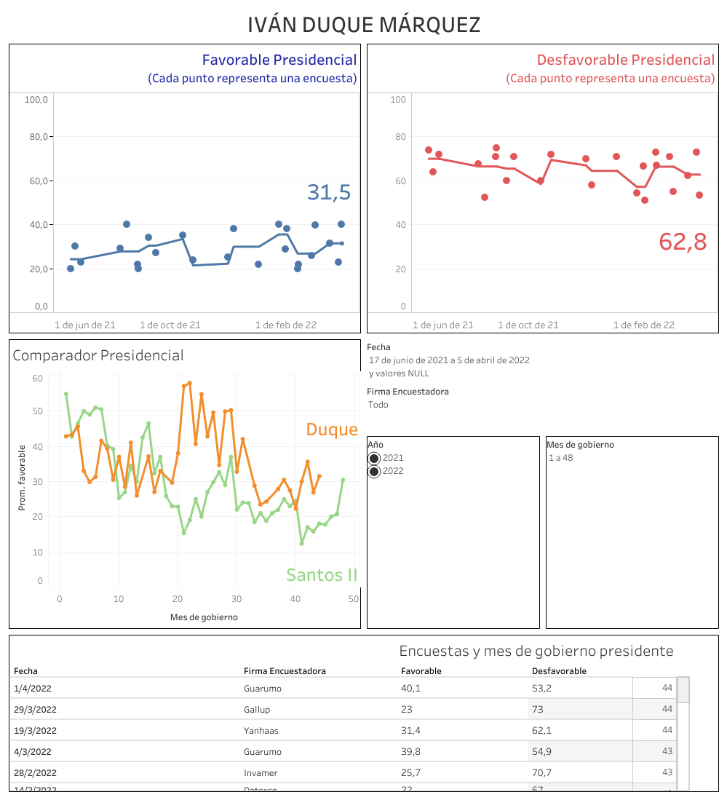
Source: Promedia | Twitter
2. MutabiT - Graphoscope
Offray Vladimir Luna
Candidatos en Datos is a project -prototype- to make visible ways of citizen participation, co-governance, and transparency. Its main feature is a customizable digital tool, i.e., It has custom navigation interfaces.
They showed us the prototype delivery that visualizes the Twitter discourse of Colombia’s presidential and vice-presidential candidates in the 2022 elections.
📧 To learn more write to info@mutabit.com or follow #CandidatosEnDatos and mutabiT.
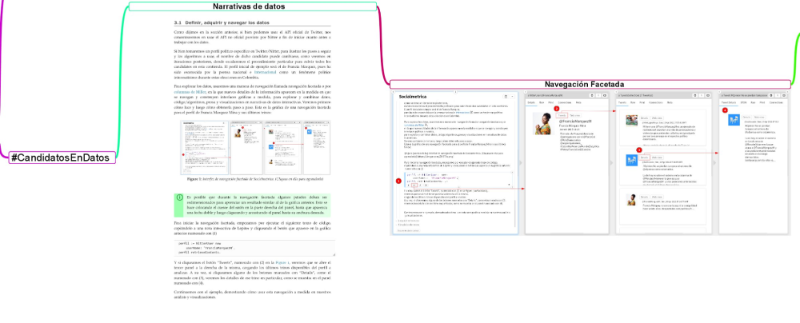
Source: @offrayLC | Twitter
Hunting Zombies
Emmanuel José Ariza Ruiz
In 2019, Emmanuel conducted an investigation using the Twitter API during the National Strike. He discovered a network of botized accounts (zombies), which operated synchronized. In these Twitter “hive-minds”, he noticed that, in addition to discrediting the social movement promoted by the Paro, they intended to benefit high government officials of that time.
⌨️ If you are interested or want to collaborate, you can find the code and data here.
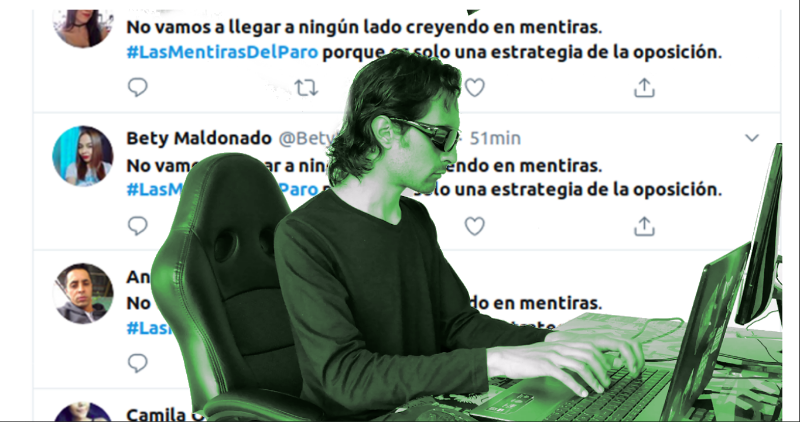
Source: @divisiondeariza (currently suspended) | Twitter.
Electoral API
Nicolás Ocampo Rodríguez
It is an open project supported by the Faculty of Communication of the Universidad de La Sabana, SocialTIC, and Datasketch for the elections in Colombia in 2022. This platform provides information on each candidate in a repository from GitHub – you will find a .zip file containing the JSON and CSV version of the API tables and endpoints.
The proposal, Nicolás told us, is to build stories with this data. For example, electoral financing, connections between candidates, and other ideas.
Access the project’s website: API - Electoral | API
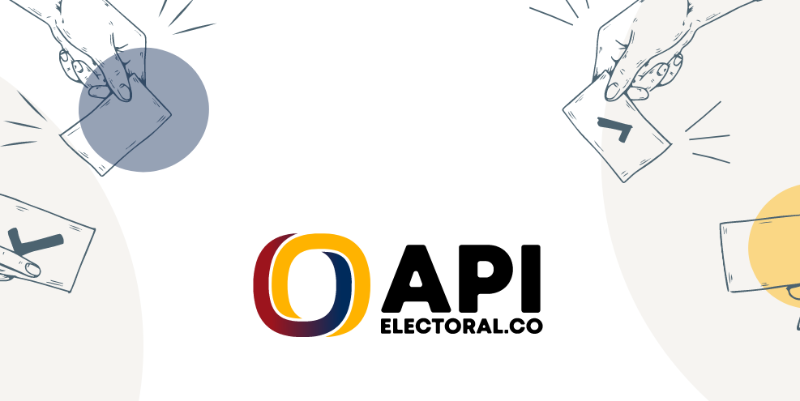
International’s Affair
Ana Carolina Dussan
It is a pandemic personal blog resulting from the author’s trajectory. It addresses international, cultural, educational, and legal issues.
We highlight her publication: As the day of CHANGE arrives: COLOMBIA PRESIDENTIAL ELECTIONS on May 29, 2022. It analyzes the public budget for 2023 based on the draft bill presented by the Colombian Ministry of Finance, which is based on data on economic forecasts for the country presented by the OECD.
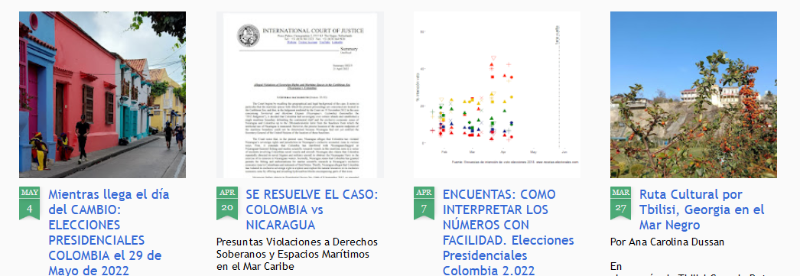
Cuestión Pública - Voting Game
Mateo Restrepo
This app visualizes what Cuestión Pública has called the Game of Votes, alluding to the popular Game of Thrones. In this case, the ‘political houses’ refer to the most powerful political clans seeking a seat in Congress, presidential and local elections. Datasketch collaborated on the design and visualizations of this proposal.
⚔️ Explore the app.
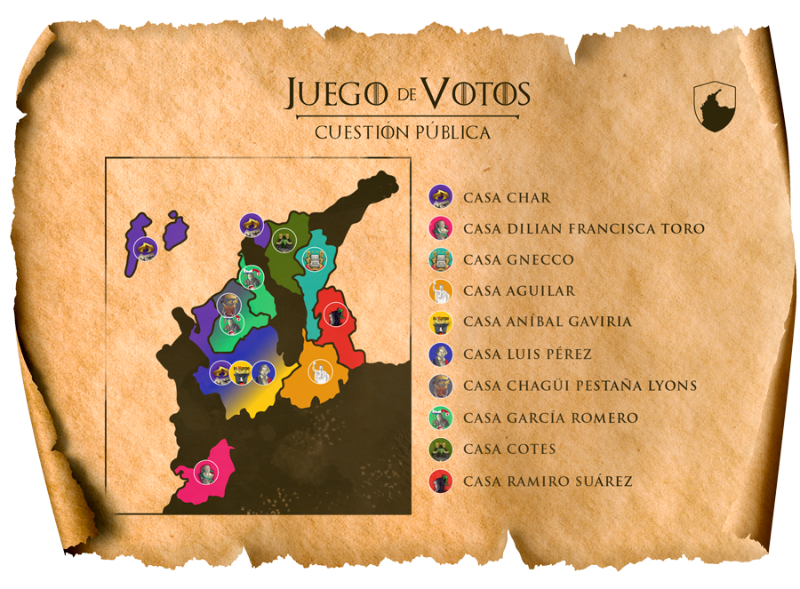
DIP - Detox Information Project
Beatriz Helena Vallejo
This initiative uses behavioral science to reduce misinformation and polarization in Colombia. You can find easy-to-use tools to discover, prevent and manage that people are less vulnerable to computer manipulation.
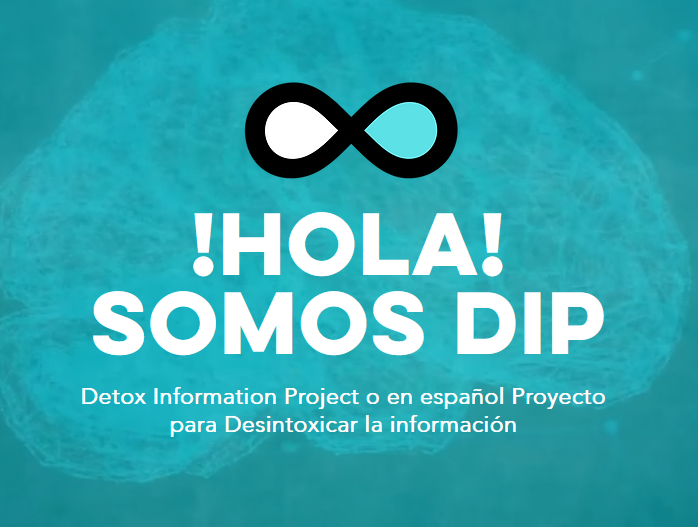
Source: DIP - Project to Detoxify Information (@DetoxDip) Twitter.
Instituto Anticorrupción
Adriana María Romero and Ivón Sepúlveda
IntegriData is a tool that the Instituto Anticorrupción, through the Justice and Impunity Observatory, makes available to disseminate statistical information about the punishment and prosecution of crimes against public administration and electoral crimes in Colombia.
The tool contributes to closing the gap in access to public information of the judicial branch and public institutions. In addition, it is a proposal that feeds the discussion of corruption and impunity cases.
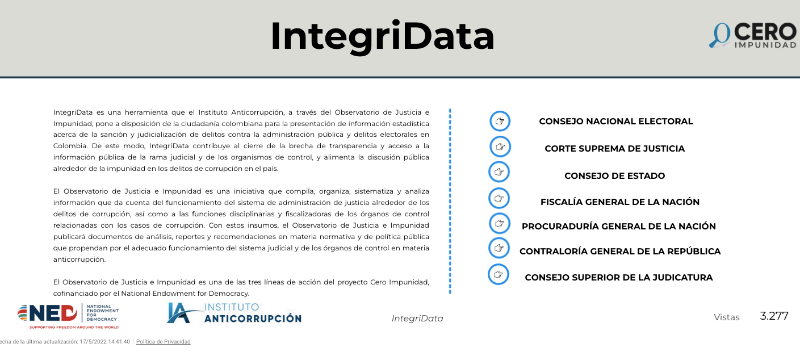
Research Group on Complexity - National University of Colombia
Juan Camilo Higuera
We live in a world made up of an intricate and integrated network of connections, which cannot be understood by dissecting the world into its parts but requires a holistic view. Juan Camilo explained that, at a technical level, this perspective is offered by network science. In it, entities are studied based on their pattern of connections, thus leading us to new frontiers in data analysis, towards topological data analysis, in the modeling of epidemics, both of viruses and ideas, and the understanding of the structuring patterns of criminal organizations, corruption, among others.
He pointed out that network science offers a perspective for analyzing complex networks and tools for shaping them. For example, it is possible to find which places in the network’s dynamic control of the networks are most optimal or what minimal changes in local connectivity are necessary if the network is to be changed.
This vision opens new doors for thinking, anticipating, and directing the future of society.




